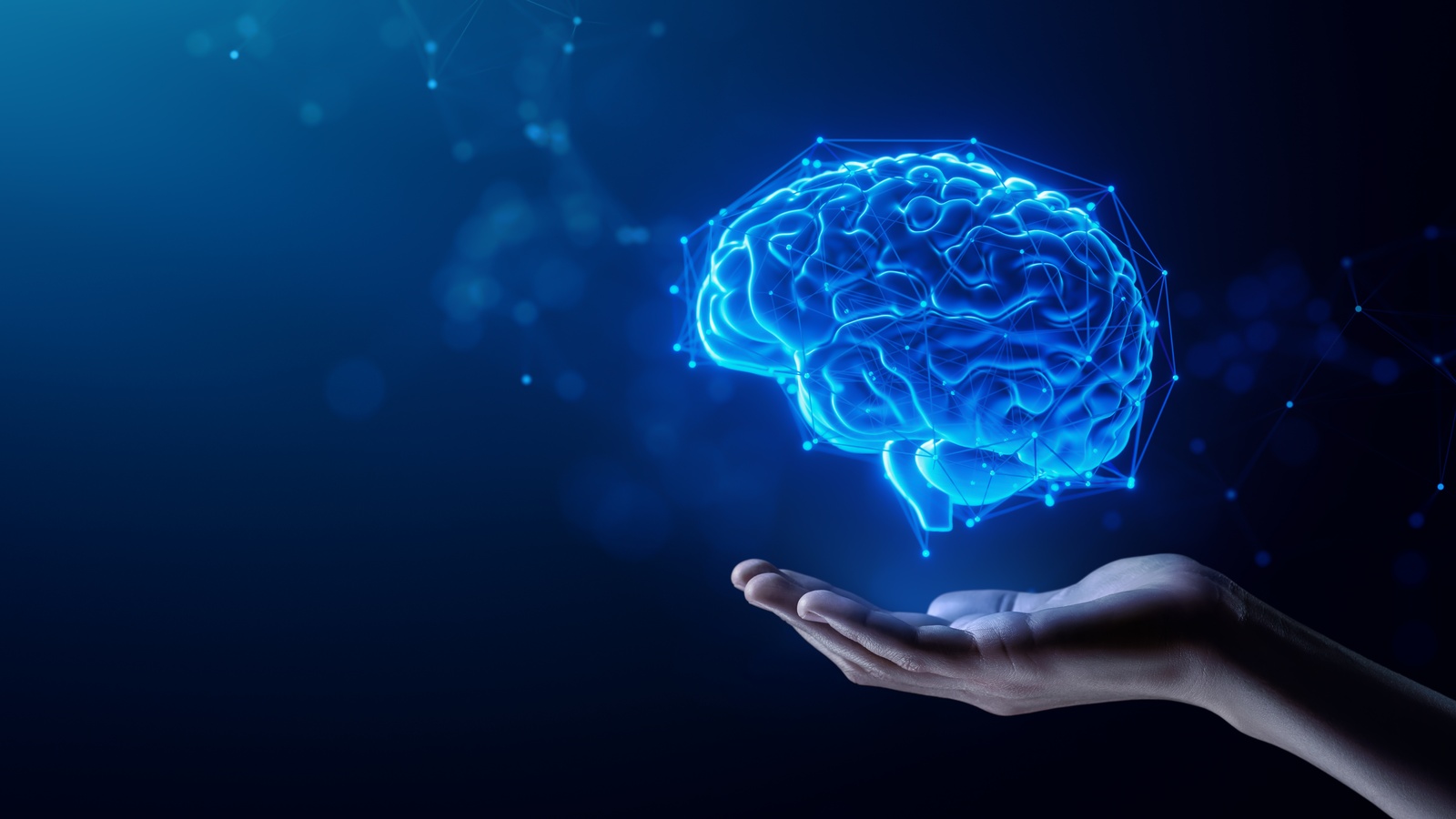Articles / Healthy Living
Aug 26, 2025
9.8K Views
Biohacking Your Brain: Unlocking Peak Performance and Longevity
By Camilla Thompson (BioHackMe Coach)
One of the biggest fears of getting older is the decline in cognitive functioning. The ability to think clearly, remember information, and stay mentally sharp directly impacts quality of life. This is why biohacking your brain is so important—by optimizing brain health, you can maintain mental agility, improve focus, and future-proof your cognitive function for years to come.
Your brain is your command center—governing focus, creativity, memory, and mood. But in today’s fast-paced world, stress, toxins, and poor lifestyle choices can take a toll on cognitive function. The good news? With targeted biohacking strategies, you can optimize brain health, enhance neuroplasticity, and future-proof your mental agility. Here’s how…
Fuel Your Brain with a Nutrient-Rich Diet
Your brain thrives on quality fuel. A diet rich in omega-3 fatty acids, antioxidants, and brain-supportive nutrients can protect against cognitive decline and enhance mental clarity. I personally found my nutrition training invaluable in learning what our brain needs to fuel and support it as well as understanding our unique bio-individuality which is key to knowing what works for us.
-
Omega-3s: Found in wild-caught fish, flaxseeds, and walnuts, they support neuron communication.
-
Antioxidants: Berries, dark chocolate, and green tea help combat oxidative stress.
-
IMF (Intermittent Fasting): Promotes autophagy, clearing out damaged brain cells for optimal function.
Strengthen Cognitive Resilience with Social Connections
Engaging in meaningful conversations and social interactions isn’t just good for emotional health—it’s a cognitive booster. Socializing stimulates multiple areas of the brain, keeping neural pathways active and resilient against aging. Prioritize deep conversations and community engagement to sharpen your mind.
Understand the Three Brain Networks
The brain operates in three key networks that influence how we think, feel, and act:
-
The Thinking Brain (Cognitive Network): Involved in logical reasoning, problem-solving, and planning. However, excessive time spent here can lead to overthinking, rumination, and anxiety—key factors in mental health issues.
-
The Doing Brain (Task Positive Network): Governs action, productivity, and goal-directed behaviour. Many people stay stuck in a cycle between the thinking and doing brain, constantly switching between analysis and execution.
-
The Feeling Brain (Emotional Network): Responsible for intuition, creativity, and emotional regulation. Spending more time in this network can enhance mental well-being, helping to balance stress and prevent burnout.
Many mental health challenges arise from being stuck in the thinking brain, ruminating, overanalyzing, and internalizing emotions. Biohacking techniques can help shift the brain toward more balanced states by integrating all three networks effectively.
The Brain-Gut Connection: Supporting Mental Health from Within
Your brain and gut are in constant communication through the gut-brain axis, primarily via the vagus nerve. An imbalanced gut can contribute to brain fog, anxiety, and depression, while a well-nourished gut supports clear thinking and emotional stability.
-
Serotonin & Dopamine Production: Over 90% of serotonin and 50% of dopamine—the brain’s happy chemicals—are produced in the gut.
-
Probiotic & Prebiotic Foods: Support a diverse microbiome with fermented foods like kimchi, yogurt, and sauerkraut.
-
Reduce Gut Inflammation: Avoid processed foods, excessive sugar, and artificial additives to prevent neuroinflammation.
-
Vagus Nerve Stimulation: Deep breathing, meditation, and cold exposure help regulate gut-brain communication for improved mental health. You can also buy a vagus nerve stimulator to help you activate it.
Taking care of your gut is one of the most effective ways to support long-term brain health and prevent cognitive decline.
The Power of Music and the Mozart Effect
Music isn’t just entertainment—it’s a tool for cognitive enhancement. The Mozart Effect is a theory suggesting that listening to classical music can temporarily enhance cognitive performance, including memory and spatial reasoning. Music has been shown to positively impact brain function in several ways:
-
Boosts Focus: Certain types of music can help maintain concentration and productivity.
-
Enhances Memory: Music activates multiple brain areas, improving recall and cognitive flexibility.
-
Improves Mood: Sound therapy and binaural beats can support relaxation and stress reduction.
Incorporating music into your daily routine can be a simple yet effective way to sharpen your mind and elevate performance.
Prioritize Sleep for Memory and Cognitive Function
Deep sleep isn’t a luxury—it’s a necessity. During sleep, the brain consolidates memories, clears toxins, and strengthens learning capacity.
-
Aim for 7-9 hours of high-quality sleep.
-
Spoonful of honey (raw or manuka) tricks the brain into using this for energy in the night so will help you sleep better.
-
Use blue-light blocking glasses and limit screen time before bed.
-
Consider magnesium supplements to enhance relaxation.
Stay Hydrated to Boost Brain Power
Dehydration leads to brain fog and poor cognitive function. Since the brain is composed of about 75% water, hydration is critical for neurotransmitter function and mental clarity.
-
Start your day with a large glass of filtered water - add a pinch of celtic salt salt for optimal hydration. Our bodies are made up of salty water so it needs good quality salt to hydrate.
-
Hydrogen water - tablets are best
-
Include electrolytes to improve cellular hydration
Elevate Mental Performance with Nootropics & Smart Drugs
Nootropics can enhance cognitive function, memory, and motivation.
-
Methylene Blue: Supports mitochondrial function and protects against neurodegeneration.
-
Lion’s Mane Mushroom: Stimulates nerve growth factor (NGF) and supports neuroplasticity.
Boost NAD Levels for Brain Energy and Longevity
NAD (Nicotinamide Adenine Dinucleotide) is essential for cellular energy and brain metabolism. Supporting NAD levels can enhance cognitive resilience and slow brain aging.
-
NMN, NR & Resveratrol help maintain optimal NAD levels and mitochondrial function.
Train Your Brain with Cognitive Exercises
Just like the body, the brain needs exercise. Cognitive training keeps neural pathways strong and adaptable.
-
Puzzles and problem-solving activities enhance memory and processing speed.
-
Memory exercises strengthen recall and focus.
-
Learning new skills stimulates neuroplasticity, the brain’s ability to rewire itself.
Move Your Body for Neuroplasticity
Regular aerobic exercise isn’t just good for your body—it’s essential for brain health. Movement increases blood flow to the brain, promoting neurogenesis (the creation of new neurons).
-
Running, cycling, and swimming support cognitive function.
-
Yoga and breathwork enhance focus and reduce stress.
Enhance Coordination and Balance for Brain Optimization
Balancing exercises challenge the brain and body, improving spatial awareness, coordination, and cognitive function.
-
Single-leg stands, balance boards, and tai chi help strengthen neural connections.
-
Balance training activates the cerebellum, supporting movement control and cognitive processing.













